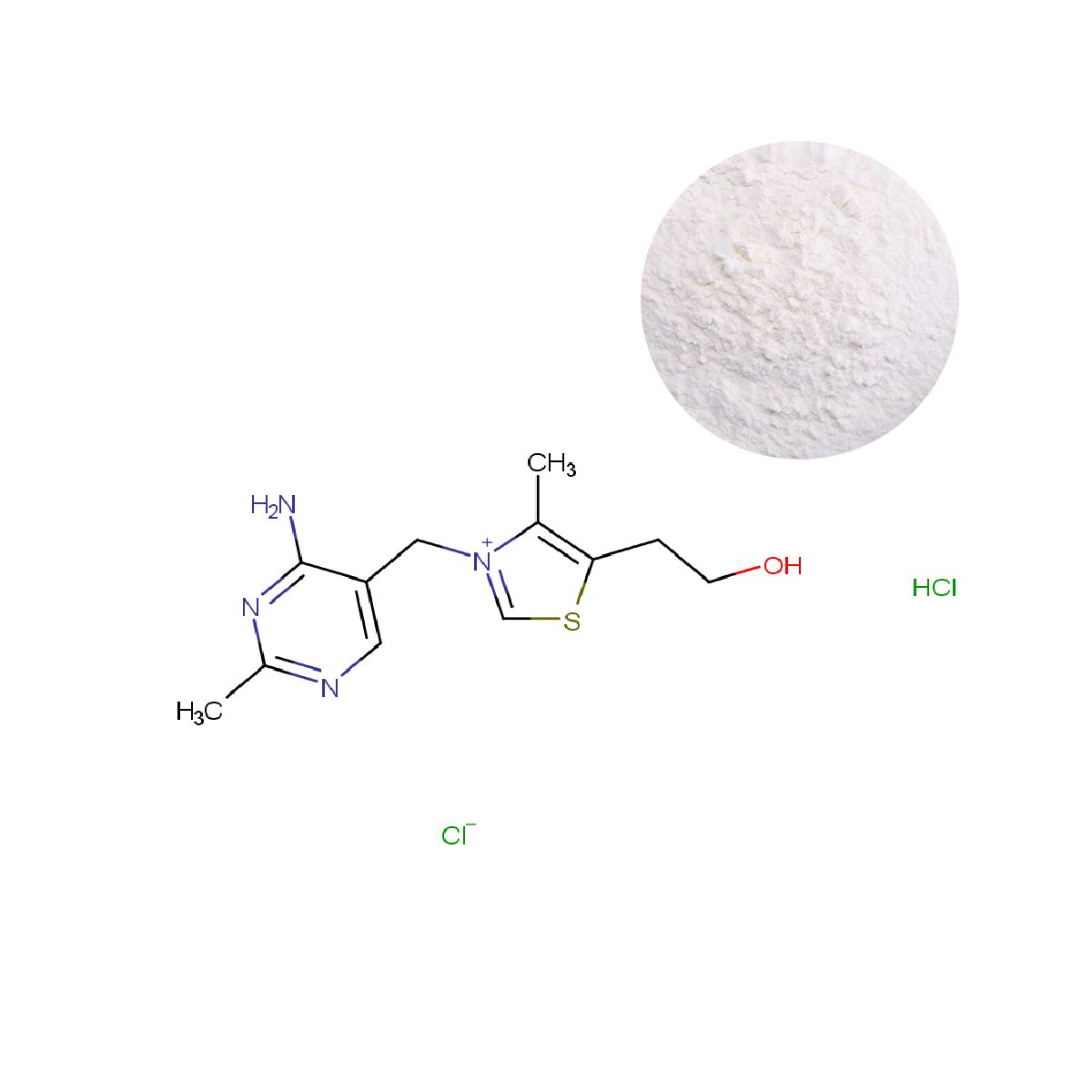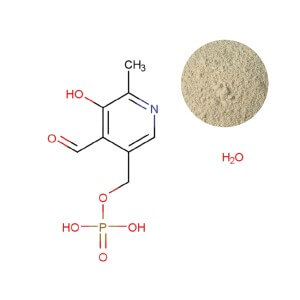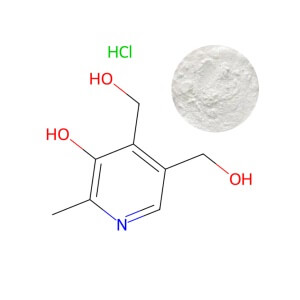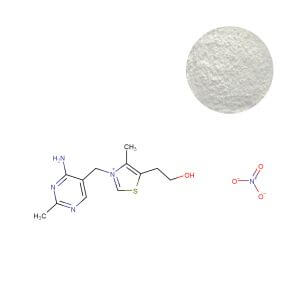
Vitamin B1 Thiamine HCl
| Product Name | Vitamin B1 Thiamine HCl |
| CAS Number | 67-03-8 |
| Appearance | White to off-white crystalline powder |
| Purity | ≥ 98% (HPLC) |
| Packaging | 1kg/bag, 5kg/bag, 25kg/drum |
| MOQ | 1kg |
Thiamine HCl: The Essential Vitamin B1 for Your Nutritional Formulations
In an industry where product efficacy and supply chain integrity are paramount, the selection of your active ingredient is a decisive factor. Our Thiamine Hydrochloride (Vitamin B1 HCl) delivers the foundational reliability your production requires—supported by stringent quality control, actionable technical expertise, and a supply chain built for resilience. This enables you to formulate with certainty, ensuring your dietary supplements, fortified foods, and animal nutrition products achieve consistent, batch-traceable performance. It’s a commitment that elevates a fundamental ingredient into a strategic advantage for your brand.
What is Thiamine Hydrochloride? The Formulator’s Perspective
From a formulation standpoint, Thiamine HCl is the stable, water-soluble salt of Vitamin B1, standardized as a white crystalline powder. While consumers obtain B1 from their diet, your products demand a precise, consistent, and concentrated input. This compound serves as the direct precursor to Thiamine Pyrophosphate (TPP), the indispensable coenzyme that catalyzes cellular energy (ATP) production from carbohydrates. In practice, this provides a functionally validated starting point for your energy, wellness, or cognitive support formulations. The underlying mechanism is well-documented, and ongoing research, including a 2024 study on its role in addressing neurochemical imbalances under oxidative stress, continues to reinforce its critical biological significance.
How Thiamine HCl Delivers Measurable Value in Your Products
Beyond meeting basic nutritional requirements, Thiamine HCl acts as a versatile functional driver. Here is how it creates tangible benefits across your product portfolio:
- Core of Energy Metabolism: Its role in converting carbohydrates into usable cellular energy (ATP) is non-negotiable. For sports nutrition and energy supplement brands, this isn't merely a claim—it's the established biochemical foundation for product efficacy.
- Authentic Nervous System Support: TPP is vital for synthesizing key neurotransmitters and maintaining healthy nerve function. This makes Thiamine HCl an evidence-based cornerstone for formulating modern cognitive health and neurological support products.
- Compliance & Public Health Impact: The fortification of staple foods like flour and rice with Thiamine is a global public health imperative. For food manufacturers, partnering with a compliant and consistent supplier is essential for market access and fulfilling brand responsibility.
- Animal Health and Operational Efficiency: In animal nutrition, it prevents deficiency disorders and supports metabolic efficiency, directly contributing to healthier livestock and improved operational productivity. (For feed formulations that demand exceptional stability, especially in the presence of choline chloride, our Thiamine Mononitrate offers a specialized solution).
- Unmatched Formulation Flexibility: With excellent water solubility (approximately 1g/1mL), it integrates seamlessly into diverse delivery systems—from tablets and capsules to clear beverages and fortified foods—providing your R&D team with greater creative latitude.
Why Partnering with Us Reduces Your Risk and Complexity
In B2B partnerships, consistent execution and expert support carry more weight than generic promises. We differentiate ourselves by de-risking your supply chain and delivering tangible value where it matters:
- Guaranteed Batch-to-Batch Consistency: We understand that production lines cannot tolerate variability. Our Thiamine HCl delivers identical assay (98.5%-101.5%), solubility, and performance with every order, minimizing QC adjustments and mitigating rejection risks.
- Technical Documentation That Empowers Your Team: We provide more than a Certificate of Analysis (CoA). Our experts help you interpret the data, clarifying what each specification means for your specific application—from stability in gummy matrices to compatibility in liquid shots.
- Proactive, Solution-Oriented Partnership: When you encounter a formulation challenge, we leverage our network and deep expertise to help you navigate it, whether optimizing tablet hardness or preventing vitamin degradation in challenging pH environments.
- Verifiable Quality Built on GMP Standards: Sourced from audited facilities operating under strict GMP, every batch is subjected to rigorous testing for identity, potency, heavy metals (<10 ppm), and microbiological limits. We provide the complete traceability and documentation your compliance team needs.
Supply Chain Reliability That Keeps Your Operations On Track
Manufacturing schedules are fixed. Our logistics are engineered to meet that reality head-on. Through strategic relationships and proactive buffer stock management, we ensure timely delivery for both pilot runs and full-scale production. We manage the complexities—from preparing documentation for smooth customs clearance to guaranteeing adherence to FDA, EFSA, and other major international standards. This allows you to concentrate on manufacturing, not logistics. Our commitment is straightforward: to provide full supply chain transparency and deliver on schedule, every time.
Technical Specifications for Informed Decision-Making
Your R&D and procurement teams require clear, actionable data. The key specifications below define our Thiamine HCl’s performance and integration profile. For a complete parameter table, please consult our dedicated technical datasheet.
- Appearance & Solubility: White to off-white crystalline powder, freely soluble in water.
- Assay (Purity): 98.5% - 101.5% on dried basis.
- Compliance & Safety: Identified per USP/EP methods. Heavy metals below 10 ppm.
- Stability & Packaging: 24-month shelf life in original, light-protected packaging below 25°C. Available in 1 kg bags to 25 kg drums, with custom options available.
These parameters ensure the ingredient performs predictably in your process, reducing development trial time and accelerating your time-to-market.
Targeted Applications and Formulation Insights
Maximizing ingredient performance hinges on application-specific knowledge. Here’s how our Thiamine HCl excels across key sectors:
- Dietary Supplements: Demonstrates excellent stability in multi-vitamin matrices. Compatible with both direct compression and wet granulation, helping you achieve consistent tablet integrity and guaranteed potency throughout the product's shelf life.
- Food Fortification: Possesses sufficient heat stability for standard baking processes, making it an ideal choice for fortifying flour, cereals, and meal replacement powders to meet regulatory standards.
- Functional Beverages: Its high solubility makes it perfect for clear and emulsion-based drinks. For products requiring extended shelf-life, we can recommend formulation strategies to protect against potential UV degradation.
- Animal Nutrition: Maintains stability in premixes and during feed pelleting and extrusion processes, effectively supporting health and growth efficiency across livestock and poultry.
- Advanced Nutritional Products: Well-suited for specialized enteral and clinical nutrition formulations, and backed by the requisite GMP and food safety documentation for these sensitive segments. (For formulations targeting enhanced bioavailability through lipid-soluble analogs, our Benfotiamine Powder provides a specialized alternative).
Your Next Steps: From Evaluation to Integration
Selecting the right Thiamine HCl supplier is a strategic decision that directly impacts your product quality, regulatory compliance, and market agility.
In summary, a partnership with us delivers:
- Risk Mitigation: Through certified quality, uncompromising batch consistency, and comprehensive regulatory documentation.
- Time-to-Market Acceleration: Enabled by actionable technical support and formulation insights tailored to your specific application.
- Supply Chain Confidence: Built on reliable logistics and transparent, proactive communication.
Ready to evaluate a superior supply partner for your next project? Let's move beyond a simple quote.
Contact us today to request your complimentary sample kit and a customized technical brief for your application. Start Your Qualification Process
Frequently Asked Questions
Share this product
Related Products
Ready to get started?
Contact our team for technical specifications, pricing, and customized solutions.



